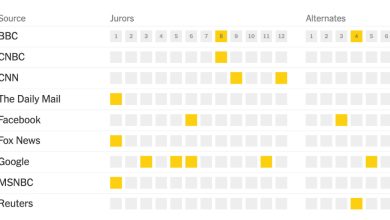How to Have Faith in Possibility

In Greek mythology, Cassandra was a Trojan princess who was given a great gift by the god Apollo: the ability to see into the future. But when Cassandra refused his advances, he added a curse. He made it so no one would believe her prophesies. When she predicted the fall of Troy, for example, and attempted to expose the Greek soldiers hiding in the Trojan horse, people ignored her, calling her vision “ruinous madness” — to their doom.
Recently I’ve noticed that the internet is awash in Cassandras, only this time, it seems like everyone believes them. Being a doomer — believing that the end is nigh, everything is going to go to hell and maybe we are, too — is big right now.
The apocalyptic thinking seems to go beyond the standard end-times fare of certain sects of evangelical Christians. This new political and social doomerism has become mainstream and is definitely unholy. Instead of the hope of salvation, we are offered lots and lots of tweets.
Last year, doomer doctors garnered big numbers on Twitter predicting that every pharmacy in America would close by February 2022 because of Covid (though one doomer, at least, did revisit her prediction). Now there are doomer professors predicting that the end of society is nigh (and getting praise on Reddit for doing so). There are doomers who have embraced nihilism over electoral politics and doomers creating “bug out” kits for when the world ends because of climate change or the Supreme Court. Doomerism is hotter right now than the street outside my apartment, and that street is pretty damn hot.
It’s not hard to figure out why we are experiencing a new religion of profound pessimism. For a lot of people, things seem pretty bad right now — whether they’re fearful of Covid or care deeply about abortion rights being taken away, climate change, police brutality or severe restrictions on immigration — and the means by which those bad things might be changed or reversed seem more stuck than ever before. (As if on cue, a global heat emergency descended on us right after the Supreme Court ruled that the Environmental Protection Agency overstepped its bounds in creating the Clean Power Plan.)
Meanwhile, political figures from Donald Trump on down have been up to things many of us find not just anathema to democracy but abhorrent. Their dealings, all delivered to our eyeballs by the nonstop information deluge that is the internet, bring me, at least, to an emotional nadir. No wonder people aren’t feeling, shall we say, optimistic.
But recognizing that things are bad and could get worse is not what I’m talking about. Rather, doomerism luxuriates in the awful, and people seem unable to get enough of it — the equivalent of rubbernecking at a terrible car accident. That horrible news story you saw? That’s what’s going to happen everywhere, probably soon, definitely to you, and here’s a 22-tweet thread about it. Also, the problems of every town and city are evidence of impending catastrophe, which is coming for you and your family, and no, there’s nothing you can do about it. Covid? Monkeypox? Everything is another harbinger of calamity. And actually, people who aren’t doomers are just lying to themselves, pretending we are not all fated to die in a sick, sad world.
But … why? What’s the point of all this? If the idea of doomerism is to use hyperbole to spur readers or listeners to greater action, it’s not very effective. It seems to make our situation worse. As the climate scientist Michael Mann told Mother Jones in May, after Wynn Bruce died by self-immolation outside the Supreme Court, “Climate doomerism can be harmful because it robs us of agency, the agency we still have in determining our future.”
If you want people to do something, they need to be motivated — and impending doom doesn’t seem to do it. Yes, it seems like it would be the equivalent of setting someone’s couch on fire to get them to move, but doomerism seems to have the same effect as depression, bringing about a loss of interest in taking action.
It makes sense. If you believe that your fate is sealed by climate change or the Supreme Court or the Republican Party, well, why would you do anything about it? As Mann told The Guardian, doomerism causes people to be “led down a path of disengagement.”
It might surprise you to know that I am an increasingly optimistic person. I am much more positive about the future now than I was as a teenager. (I blame the very bad time that is “being a teenager.”) And I’m even sunnier today than I was in my 20s. (I’m now in my 30s.) Some of that is because of the gift of marriage, and some of that is because of the improvements I’ve seen in my work and in the lives of people around me. Plus, things I would have never thought possible in politics and culture have happened in my lifetime because people refused to give into cynicism or accept that everything is actually terrible.
I have found that the best way to spur action is to begin from a place of optimism — a belief that the thing you want really is possible. (That also means having a realistic vision for what life would look like if you got the thing you wanted.) I’ve used optimism to help people around me change their minds on marriage equality and qualified immunity reform, and argued in favor of those ideas because I believe they are good, not because those are the only ideas stopping us from dying in a horrifying cataclysm. Optimism also borrows from Christianity, because in order for it to work, you have to have faith in possibility. And I do.



